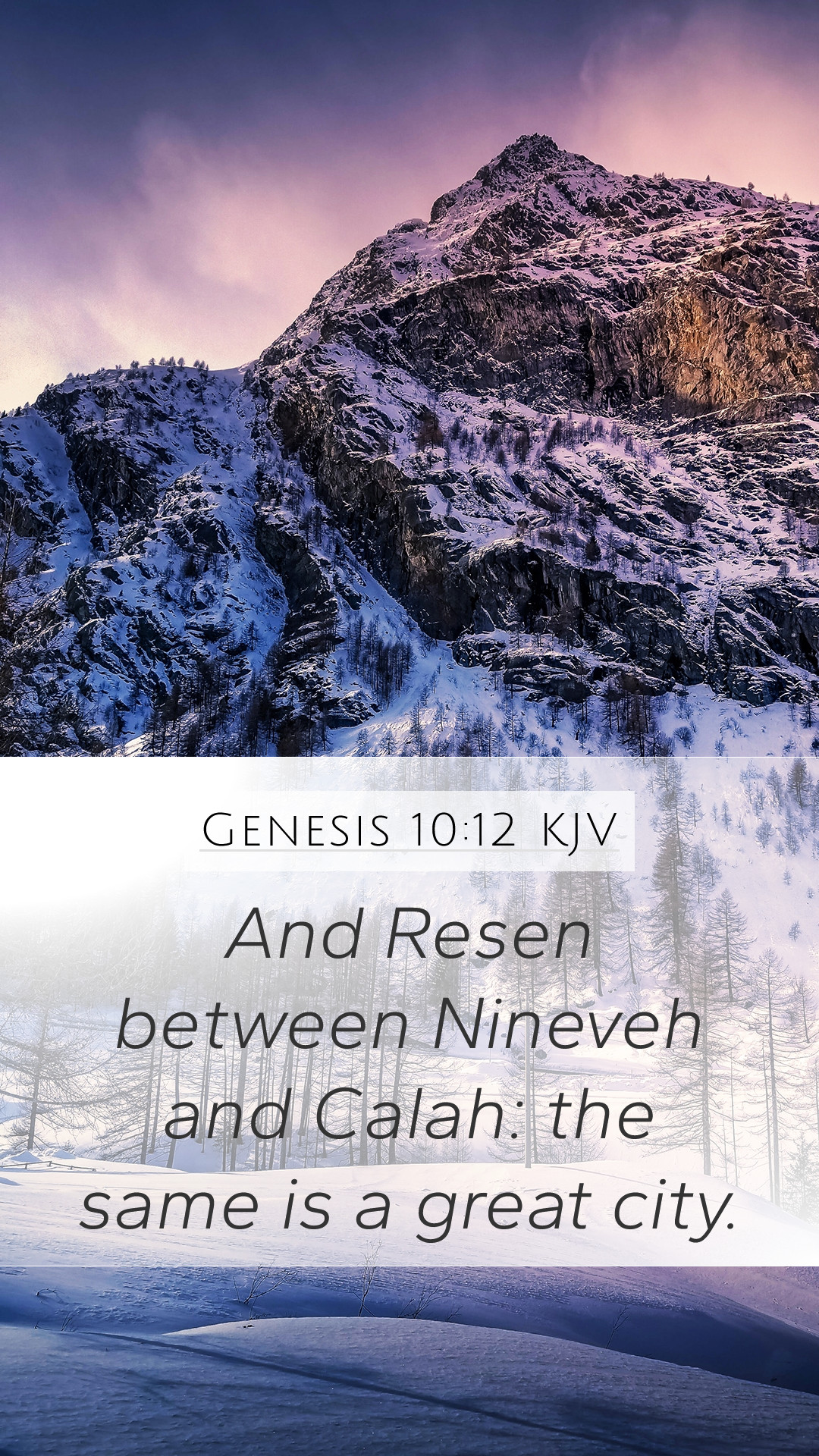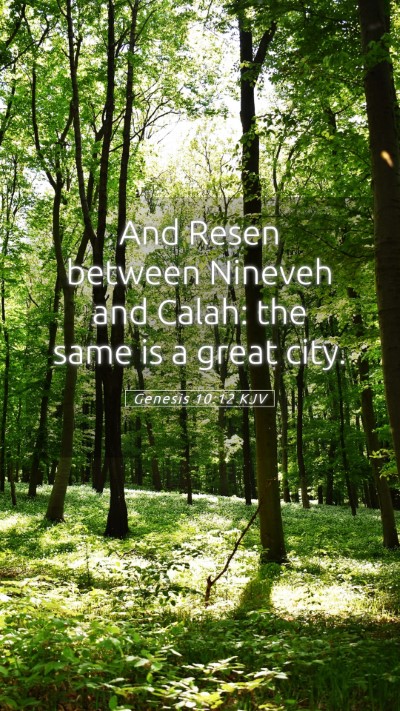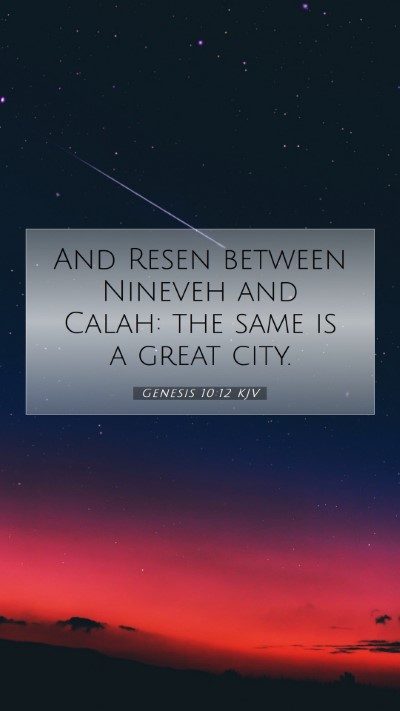Bible Verse Commentary: Genesis 10:12
Genesis 10:12 reads: "And Resen between Nineveh and Calah: the same is a great city." This verse occurs within the genealogical records in the Book of Genesis, focusing on the descendants of Noah and their territories.
Overview
This verse is part of the larger narrative in Genesis chapter 10, often referred to as the Table of Nations. It details the descendants of Noah and the spread of nations after the flood, providing critical insights into the historical context of the early world.
Insights from Public Domain Commentaries
Various esteemed biblical commentators offer profound insights into this verse:
-
Matthew Henry:
Henry observes that this passage highlights the foundational cities and regions established by Noah's lineage, reflecting the divine guidance in human settlement post-flood. He emphasizes that the naming of cities signifies cultural development and civilization's advancement.
-
Albert Barnes:
Barnes interprets "Resen" as one of the notable cities in ancient Mesopotamia, strategically positioned between Nineveh and Calah. He suggests that this geographical positioning indicates the growth of urban centers and their socio-political implications in early history.
-
Adam Clarke:
Clarke elaborates on the significance of naming cities, indicating that "Resen," which is often compared to other cities in Mesopotamia, illustrates the expansion and establishment of communities following the flood. He also notes that this verse serves as a bridge, linking various significant cities in the region.
Meaning of Genesis 10:12
The essence of Genesis 10:12 can be understood through the lens of civilization's development and God's providence in human history. As the descendants of Noah populate the earth, the formation of significant urban centers becomes evident. This not only showcases the growth of human society but also reflects God’s plan for humanity after the catastrophic flood.
Historical Context
This verse is crucial for understanding the post-flood era, marking the division of nations and the cultural identities forming around significant cities. The mention of such cities links the narrative to important archaeological sites, affirming the historical credibility of the biblical accounts.
Application for Today
In our contemporary lives, Genesis 10:12 teaches the value of community and advancement. It prompts believers to consider how God is working in their lives through the communities they form and inhabit. Just as the descendants of Noah established cities that shaped their future, individuals today are called to build lives and communities grounded in faith and purpose.
Cross References
This verse connects to several other passages that offer additional insights and themes:
- Genesis 10:10: Discusses the beginning of the kingdom of Nimrod, linking the establishment of cities to leadership and governance.
- 2 Kings 19:36: Refers to Nineveh as an important city in later texts, highlighting its role in biblical prophecy and history.
- Acts 17:26: States that God determined the boundaries and periods of nations, echoing the divine orchestration behind Genesis 10:12.
Final Thoughts
Understanding Genesis 10:12 is critical within the broader context of Bible verse meanings. It emphasizes how historical contexts shape our comprehension of Scripture. Whether through Bible study groups, online Bible study, or personal reflection, engaging with such verses offers deep insights into God's plan for humanity.
As you explore this text, consider the significance of urban life, community, and God's sovereignty in history. This journey aids in grasping biblical exegesis, enriching your Bible study insights, and fostering a greater understanding of Scripture.


